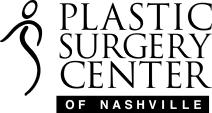
Are you of the mind that plastic surgery and cosmetic surgery are one in the same? If your answer is yes, you’re not alone, and it’s understandable. Many plastic surgeons focus their practice on cosmetic surgery, and this interchanges the terms. But using one term for another is not technically or medically correct. Plastic surgery and cosmetic surgery may be related specialties, but they are not the same by a long shot.
They Have Different Goals
Although plastic surgery and cosmetic surgery focus on improving the body, their goals, research, and training are different.
Cosmetic Surgery Enhances Appearance
The principles, techniques, and procedures of cosmetic surgery focus on improving a patient’s appearance. Enhancing the proportion, symmetry, and aesthetic appeal are its key goals. The surgery can be applied to the body, neck, and head when they function properly. Because there is no functional improvement, cosmetic surgery is always elective. Various surgeons and doctors perform cosmetic surgery including plastic surgeons.
Cosmetic Surgery Scope Includes:
- Skin Rejuvenation (dermal fillers, Botox, laser resurfacing)
- Body Contouring (Liposuction, Tummy Tuck)
- Facial Rejuvenation (Brow Lift, Neck Lift, Eyelid Lift, Facelift)
- Breast Surgery (Breast Reduction, Breast Lift, Breast Augmentation)
Plastic Surgery Repairs Defects for Normal Appearance and Function
Plastic Surgery is a surgical specialty focusing on the reconstruction of body and facial defects resulting from disease, burns, trauma and birth disorders. It is reconstructive in principle and seeks to correct bodily defects.
Although many plastic surgeons seek additional training for cosmetic surgery, the basis of their training remains reconstructive surgery. In 1999, to communicate that plastic and reconstructive surgeries are the same, The American Society of Plastic and Reconstructive Surgery changed its name to the American Society of Plastic Surgery.
Plastic surgery procedures include:
- Scar Revision Surgery
- Hand Surgery
- Lower Extremity Reconstruction
- Congenital Defect Repair (Extremity Defect Repair, Cleft Palate)
- Burn Repair Surgery
- Breast Reconstruction
Cosmetic Surgery Training is Separate from Plastic Surgery Training
Because plastic surgery and cosmetic surgery have different goals, the certification and training process of a cosmetic surgeon will look different from that of a plastic surgeon.
Surgeons who become Board-Certified Plastic Surgeons must complete a general surgery residency plus a two-year residency in plastic surgery. Cosmetic surgery may be a portion of this program, but it typically does not encompass every cosmetic procedure. Consequently, the title, Board-Certified Plastic Surgeon, refers to a specific level of experience and training in plastic surgery but not in cosmetic surgery.
The training for cosmetic surgery primarily occurs after residency training. Currently, there are no residency programs in the USA which devote training to cosmetic surgery. Hence, physicians receive their training after their residency and in a post-residency fellowship.
Unfortunately, any licensed physician can legally perform cosmetic surgeries regardless of training, so it is important to research physicians before moving forward with treatment. Patients are wise to compare the doctors’ overall residency, post-residency training, experience, and practice history to learn their level of competency in any cosmetic procedure.
Why Choose a Plastic Surgeon
Although cosmetic surgery is an honorable profession and is necessary for communities today, it is important to be clear on the differences between board-certified plastic surgeons and cosmetic surgeons. When searching for a surgeon for your aesthetic procedure, there is no physician better suited than a doctor certified by the American Board of Plastic Surgery. The reasons are clear.
As defined, cosmetic surgery is the reconstruction of underlying or cutaneous tissues to correct and improve the normal effects of aging, improve scarring, or correct a structural defect. Cosmetic surgery is an important component of plastic surgery, but plastic surgery goes further than the superficial treatment.
By comparison, the definition of plastic surgery is the reconstruction, repair or replacement of physical defects of function or form involving external genitalia, breast and trunk, extremities, hand, cranio-maxillofacial structures, and the musculoskeletal system.
“Competency in plastic surgery implies an amalgam of basic medical-surgical knowledge, operative judgment, technical expertise, ethical behavior and interpersonal skills to achieve problem resolution and patient satisfaction,” states the American Society of Plastic Surgeons to clarify this reasoning.
Pathology, physiology, and anatomy are all in-depth areas of study for a plastic surgeon. These areas of study and skill include innovative liposuction techniques, complex wound management, replantation, fat grafts, and free tissue transfer.
The fact the American Board of Medical Specialties does not recognize cosmetic surgeons confirms the superior training of the plastic surgeon. Patients must realize there are no certifying boards for cosmetic surgery which are legitimate. The American Board of Cosmetic Surgery is not recognized by the American Board of Medical Specialties which is the gold standard for patient care and safety. They reserve this honor for the American Board of Plastic Surgery.
The cosmetic surgeon title can legitimately apply to any licensed general practitioner, podiatrist, ophthalmologist, general surgeon, or dermatologist. The training may be limited to short weekend courses on Botox injections or how to administer liposuction or extend to a one-year cosmetic surgery fellowship. Although some cosmetic surgeons undergo residency training, it’s not a requirement to have the board-certified cosmetic surgeon title. This fact allows Board-Certified Dermatologists trained in skin matters to perform a complicated abdominoplasty surgery.
Plastic Surgeons Have More Extensive Training
The plastic surgeon completes medical school, undergoes surgical residency for a rigorous training period and serves as a surgical resident for at least three years. Then, they spend another three years in fellowship to learn specialized aspects of plastic surgery. This entire process of education and training takes between six and eight years to complete. The law requires plastic surgeons to have their title displayed in the waiting room for review. The surgeon must re-certify every ten years to keep certifications current.
Board-certification from the American Board of Plastic Surgery is the best indicator of the best-trained plastic surgeons. This certification tells the patient that their physician has passed a comprehensive series of oral and written exams, agrees to a strict code of ethics, performs surgery in a state-licensed accredited facility, and continues their training through educational courses each year.
Board-certification may also include the American Society of Plastics Surgeons and the American Society for Aesthetic Plastic Surgery which would require another 150 hours of training every three years and the submission of six months of surgical review.
What’s the Difference?
Simply put, only the American Board of Plastic Surgery is recognized by the American Board of Medical Specialties as providing the highest level of ethics, safety, techniques, judgment, knowledge, and skills. Hospitals only allow physicians board-certified by the American Board of Plastic Surgery to treat patients in their facilities.
Although a cosmetic surgeon may be competent for injections or has training on how to place a breast implant, in the event of an unexpected complication, most patients would prefer the more knowledgeable physician trained in managing risks working on their behalf. Also, there are no better physicians for post-operative care than those of a board-certified plastic surgeon.
To learn more about the training and certifications of the Plastic Surgery Center of Nashville surgeons, contact us today.
